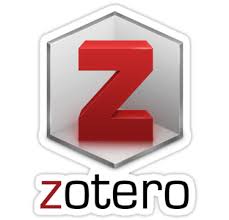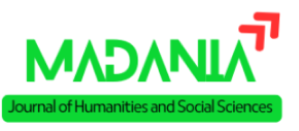Problematika Penerapan Kurikulum Merdeka Dalam Pembelajaran Pendidikan Agama Islam (PAI)
DOI:
https://doi.org/10.59240/kjsk.v5i1.129Keywords:
Merdeka Curriculum, Islamic Education, ProblemsAbstract
The aims of this research is to identify and analyze the challenges faced in applying the Merdeka Curriculum (Independent Curriculum) in Islamic Religious Education learning at MA Al-Ula Ambat Tlanakan Pamekasan. The method used in this research is qualitative approach with case studies, using in-depth interviews and observation as data collection techniques. The research results show that the implementation of the Independent Curriculum in madrasas faces several main challenges. One challenge is that freedom in teaching is not yet fully realized, even though the curriculum is designed to allow for more innovation in teaching methods.. Additionally, frequent changes in the curriculum create challenges in maintaining consistency and effectiveness of learning. Lack of adequate training for teachers is also a significant obstacle. Teachers need more support and coaching to be able to implement the Independent Curriculum well and according to its objectives. In the context of optimizing the Merdeka Curriculum (Independent Curriculum), interactive and adaptive approaches need to be enhanced to facilitate students' creativity and individual potential. Comprehensive support from all relevant parties, including local government, is essential to ensure the successful implementation of this curriculum. Apart from these challenges, students' cognitive difficulties and limited infrastructure also need further attention.
References
Creswell, J. W. (2015). Penelitian kualitatif & desain riset: Memilih di antara lima pendekatan (A. L. Lazuardi, Trans.; 3rd ed.). Pustaka Pelajar.
Hasim. (2020). Implementasi Kurikulum Merdeka Belajar mempengaruhi pada hasil evaluasi belajar peserta didik. Prosiding Seminar Nasional Peran Manajemen Pendidikan untuk Menyiapkan Sekolah Unggul Era Learning Society 5.0, Departemen Administrasi Pendidikan, Fakultas Ilmu Pendidikan.
Ishak, M., Syahidin, & Anwar, S. (2016). Pengaruh minat belajar dan kedisiplinan terhadap prestasi belajar PAI. TARBAWY: Indonesian Journal of Islamic Education, 3(2). https://doi.org/10.17509/t.v3i2.4515
Ihwanudin, M., Purnomo, & Suhartadi, S. (2016). Kontribusi efikasi diri dan keterampilan belajar terhadap pencapaian kompetensi TSM siswa UPT-PK. Jurnal Pendidikan: Teori, Penelitian, dan Pengembangan, 1(11), 2126–2130. DOI: 10.17977/jp.v1i11.7969
Kementerian Pendidikan, Kebudayaan, Riset, dan Teknologi Republik Indonesia. (2024). Peraturan Nomor 12 Tahun 2024 tentang Kurikulum pada Pendidikan Anak Usia Dini, Jenjang Pendidikan Dasar, dan Jenjang Pendidikan Menengah.
Lafiana, N. A., Witono, H., & Affandi, L. H. (2022). Problematika guru dalam membelajarkan anak berkebutuhan khusus. JCAR (Journal of Childhood: A Research), 4(2). https://doi.org/10.29303/jcar.v4i2.1686
Miladiah, S. S., Sugandi, N., & Sulastini, R. (2023). Analisis penerapan Kurikulum Merdeka di SMP Bina Taruna Kabupaten Bandung. Jurnal Ilmiah Mandala Education (JIME), 9(1), 312–318. https://doi.org/10.58258/jime.v9i1.4589
Sugiyono. (2021). Metode penelitian pendidikan (kuantitatif, kualitatif, kombinasi, R&D, dan penelitian pendidikan). Alfabeta.
Tarihoran, N. (2017). Pengembangan kurikulum. Loquen Press.
Tuerah, R. M. S., & Tuerah, J. M. (2023, Oktober). Kurikulum Merdeka dalam perspektif kajian teori: Analisis kebijakan untuk peningkatan kualitas pembelajaran di sekolah. Jurnal Ilmiah Wahana Pendidikan, 9(19), 979–988. https://doi.org/10.5281/zenodo.10047903
Wahyudin, D., Rahmawati, S., & Nugroho, P. (2024). Kajian akademik Kurikulum Merdeka. Pusat Kurikulum dan Pembelajaran.
Zulaiha, S., Meisin, M., & Meldina, T. (2022). Problematika guru dalam menerapkan Kurikulum Merdeka Belajar. TERAMPIL: Jurnal Pendidikan dan Pembelajaran Dasar, 9(2), 163–177. https://doi.org/10.24042/terampil.v9i2.13974
Downloads
Published
How to Cite
Issue
Section
License
Copyright (c) 2025 Muhlas Amali, Anzalina Wulida Fajriyanti, M. Nuril Qulub

This work is licensed under a Creative Commons Attribution-NonCommercial-ShareAlike 4.0 International License.






